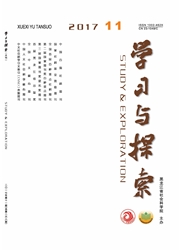

 中文摘要:
中文摘要:
根据1999-2011年中国37个工业行业的相关数据,首先基于随机前沿方法(SFA)对技术创新效率进行测量,利用面板数据的系统广义矩估计(SYS-GMM),实证检验了不同要素禀赋下中国政府在技术创新投入和产出方面的行为在整体上和分行业两个层面对技术创新效率的影响.结果显示,中国工业行业技术创新效率整体较低,其中政府的直接资金支持对整体行业带来了技术创新效率的“损失”,而分行业的政府科技投入只对高技术制造行业有效.政府对知识产权的保护,不论是对整体行业还是分行业,均表现为正向影响,但对整体行业、分行业中的初级产品行业、劳动和资源密集型制造行业不显著,对低技术和中等技术行业虽然显著,但是影响作用很小.此外,还探讨了除政府因素外,企业规模、行业竞争程度和行业所有制结构对技术创新效率的影响.
 英文摘要:
英文摘要:
Based on relevant data of 37 industries in China from year 1999 to 2011, firstly the Stochastic Frontier Approach (SFA) is used to measure the technological innovation efficiency. And based on the factor endowments, system generalized method of moment (SYS-GMM) is adopted to study the influence of Chinese government's input and output of technological innovation on technological innovation efficiency in the aspects of the whole industry and sub-industries. The results show that the average technological innovation efficiency is low, wherein the government direct financial supports have significant negative effect on the efficiency of technological innovation for the whole industry, and are only helpful to the high technology manufacturing. The intellectual property fight protection of govemment output behavior has positive effect on both the whole industry and the sub-industries, but is only significant in low-tech and medium-tech industry. Besides, other factors of enterprise scale, industry ownership structure and competition are also taken into account.
 同期刊论文项目
同期刊论文项目
 同项目期刊论文
同项目期刊论文
 期刊信息
期刊信息
